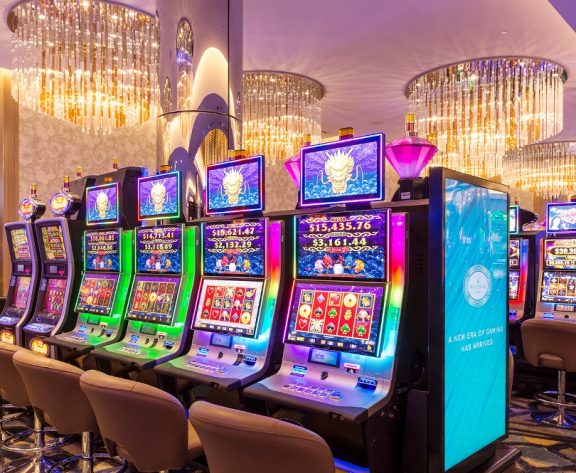
After voters in Arkansas and Florida voiced their will last Tuesday, a pair of ballot measures were approved to send the Arkansas gambling and Florida gambling industries in different directions.
In Arkansas, an initiated constitutional amendment known as Issue 4 called for full-scale casino gambling in four counties. With 99 percent of precincts reporting, Issue 4 received 469,226 votes in favor (54.1 percent) and 398,104 votes against (45.9 percent)
In Florida, there was the “Voter Approval of Casino Gambling Initiative” – also known as Amendment 3. After 99 percent of precincts reported, Amendment 3 received 5,674,609 votes (71.46 percent) in favor as opposed to 2,265,873 votes against (28.54 percent) – easily surpassing the required 60 percent supermajority margin.
But while voters in both states seemed to turn out in favor of the gambling industry, only Arkansas gambling has actually had the way paved for further expansion.
Arkansas Gambling: Two Racino Expansions + Two New Casinos
A state law passed in 2005 authorized electronic games of skill at two Arkansas racetracks – Oaklawn Racing and Gaming in Hot Springs and Southland Gaming and Racing in West Memphis.
Under the recently approved Issue 4, however, both venues received automatic licenses making them eligible to offer full-fledged casino gambling – including slot machines, table games like roulette and craps, poker and other card games, and sports betting.
Issue 4 also calls for the construction of two new casinos on the Arkansas gambling scene in Pope and Jefferson counties.
Advocates for Issue 4 included the University of Arkansas at Little Rock’s Arkansas Economic Development Institute, which produced a study forecasting 6,000 jobs added to the local economy, $5.8 billion in gross domestic product growth during the next decade, and $39 million in additional state and local tax revenue.
Alex Gray – a spokesman for the lobby group Driving Arkansas Forward which spearheaded Issue 4’s placement on the ballot – told KATV Little Rock that full-scale casinos would keep local gamblers from bringing their business across state borders:
“We polled 30 percent of Arkansans go out of state and to our surrounding states to go to casinos.
The Mississippi Gaming Commission has identified that in the past 12 months, 1.149 million people from Arkansas visited Mississippi casinos, so people are gambling.
So that averages $580 million a year, it contemplates an $800 million plus private investment in the state.”
Mississippi is one of five states to launch legal sports betting following the U.S. Supreme Court’s repeal of a federal ban in May.
Florida Gambling: Expansion Has Been Made More Difficult
Florida’s odds of joining that list of jurisdictions authorizing regulated sports betting became longer thanks to the passage of Amendment 3.
Sponsored by Voters in Charge – a political action committee bankrolled by the Seminole Tribe and Disney – Amendment 3 received $31 million in special interest funding. Ad campaigns centered on the notion that passage of Amendment 3 offered voters the “exclusive right to decide whether to authorize casino gambling” in lieu of the state legislature.
Now approved, Amendment 3 ensures that any attempt to expand Florida’s gambling industry will require more than 700,000 signatures to put a measure on the ballot. From there, voters must provide a supermajority margin of 60 percent to enact those expansions.
These additional hurdles essentially maintain the current monopoly over casino gambling enjoyed by the Seminole Tribe.
Senate President Bill Galvano spoke with the Miami Herald to outline the negative impacts he expects to see following Amendment 3’s passage:
“We’re dealing with an industry and an issue that is constantly morphing and changing.
And without the ability to address it legislatively and the agility that that requires, you’re going to create real problems within the state of Florida, and you’ll end up creating a monopoly for the Seminole Tribe.”






